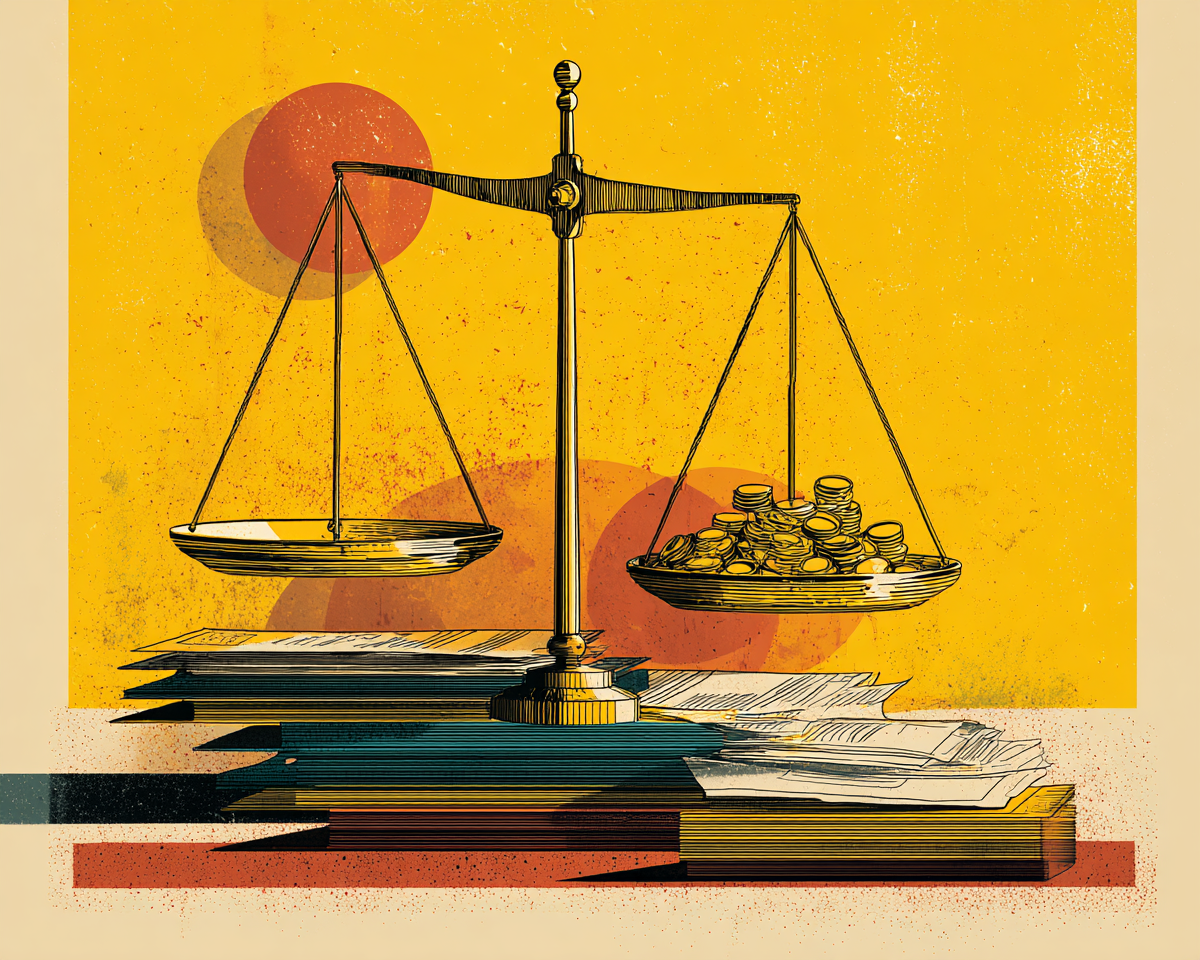
Within the repertoire of evidentiary means is the expert evidence having as main subject the expert, recognized as that individual authorized to formulate an opinion, using his expertise in a defined branch of knowledge, using his technical, scientific and specialized knowledge in the matter for which he is summoned.
By virtue of containing this distinctive note inherent to a detailed knowledge, it is unfeasible for the judge to evaluate the offer of evidence alone, being necessary to use the expert opinion to analyze the reasonableness and plausibility of the verdict.
Therefore, it is of crucial relevance to take advantage of this tool by providing clarity in the assessment of the circumstances surrounding the disputed facts or the facts themselves, being therefore of free assessment.
However, in the context in question, which requires the party to bidder In the event of failure to pay the fees of the official expert, who is appointed by the Judge, within a period of three days, and in the event of failure to pay the fees imposed, the right to present such evidence will be considered as lost, with or without the request of the opposing party, as provided in Article 353 of the Code of Civil Procedures of the State of Jalisco, the literal content of which is as follows;
"Article 353.
(...)
Once the expert appointed by the judge has accepted the position, an order shall be issued in which he/she shall be appointed, and the offeror of the evidence shall be required to deposit the expert's fees within the following three days.Except in the case provided for in the Organic Law of the Judiciary, such fees shall be fixed in accordance with the Law that establishes the Remuneration for the Auxiliaries of the Administration of Justice, or in the absence thereof, in accordance with the rules established by law for their appraisal. In any case, the amount of the fees shall be delivered to the expert, until after he renders his report.
The mere failure of the party offering the expert evidence to comply with the obligation set forth in the preceding paragraph shall be sufficient reason for it to be deemed to have forfeited its right to present such evidence, with or without the request of the opposing party.."
Under the same tenor, it is thanks to the rigid condition set forth in the article that makes it difficult to impart justice in an effective and free manner, since, upon falling into the assumption of the omission of said payment, is when the offerer loses the right to its development on the expert evidence, transgressing the right to defense, due process, the principle of procedural fairness and the aforementioned judicial gratuity. Generating as a result the discouragement and resentment of the people to help a judicial body in the need to remedy a controversy, given the imposition of excessive burdens that spoil their rights.
This unconstitutional defect is triggered by the aforementioned article, which violates Articles 17 and 14 of the Political Constitution of the United Mexican States, and Article 14.1 of the International Covenant on Civil and Political Rights.
For perceiving from the beginning an exclusive and unique monetary obligation for the offering party, hindering the access to justice when the pecuniary aspect is involved in order to be in conditions for the performance of the expert evidence, an obstacle that is disproportionate since it is only demandable for the promoting party when, in the first instance, The official expert is appointed by the Judge and not by any of the parties directly and without being associated with their names, this makes it evident that the official expert acts as a public function in his capacity as an auxiliary of the administration of justice and not because he was summoned by any of the parties to act in trial.
Subsequently, by omitting to pay the fees as a procedural requirement, it affects the opportunity to offer and present the evidence on which the defense is based, thus configuring a state of defenselessness, conditioning the right of the offerer to the payment of fees through an official deposit, and otherwise, the right to present the expert evidence is perceived as lost, and the technical opinion of the expert is not taken into account in the trial records, this being contrary to the Constitution.
As a final consideration, Article 14.1 regulates the equity of the parties in the process, which provides that all persons shall be treated equally before the courts and tribunals in order to protect the impartiality of the judges to administer equal treatment and ensure non-discrimination among the parties in the process. Article 353 of the aforementioned Code violates the principle of equity, since it denotes a contradiction in the administration of the same treatment by imposing only and integrally the payment of a certain economic amount for the offeror with the purpose of the expert evidence in which both parties need and benefit to provide clarity within the controversy.
It is inappropriate for any of the parties to cover the fees of the technical expert appointed by the judicial body that is to decide the case under debate, since the procedural requirements of impartiality are affected, especially in a trial on matters of public order, since it creates the opportunity for an economic relationship to operate between the party offering the charge and the technical expert, compromising the suitability of his work in formulating the technical issues.
It is unreasonable to have to incur in expenses in order to be able to be administered by the justice of the authorized Court, when this is a constitutional guarantee, having as ultimate purpose to avoid that for pecuniary reasons the means of conviction of the expert evidence is not administered or not received, since it could be one of the most effective to prove what is claimed.
Although, if analyzed in a reasonable manner, the appointment of an auxiliary expert of the court is considered unnecessary since the experts summoned by the parties in trial are already performing the same work, since the opinion issued by both the experts of the parties and the official expert, will be of free assessment for the Judge, that is, they will not have evidentiary effectiveness until being analyzed by the Judge, therefore, the presence of the court's expert is dispensable, since he does not collaborate in trial in a relevant manner since there are sufficient personnel to perform the requested task.
Likewise, it is the obligation of the Council of the Federal Judiciary, and of the States of the Republic, to formulate annually a list with the names of the individuals qualified to serve as experts, ordered by branch of knowledge of their expertise, specialties and circuit to which they belong.
Under the premise that the judge summons the technical consultant in cases that deviate from his technical-legal preparation, in a position to resolve the disputed facts or the constitutional controversy, it does not make any sense for the parties to finance the fees of the assistant, much less when it is disproportionately exclusive to the offeror of the expert evidence.
For no reason is it conceivable that the defendant who offered the evidence is required to pay the fees of the experts appointed by the Judge, who perform a public function assisting the Court or in its case the Justice of the Union, because it is far from the constitutional precept 17 that prohibits the costs guaranteeing the administration of justice by the Courts free of charge; Thus, in multiple matters such as civil, constitutional, administrative, among others, which agree on the inappropriateness of the obligation to accrue the salary of the auxiliary experts.
By virtue of the enigma presented regarding the unconstitutionality of Article 353 of the Code of Civil Procedures of the State of Jalisco, the alternative is the application of the diffuse control of constitutionality ex officio, based on Articles 1 and 133 of the Constitution, which confers the power to ordinary judges to inapply the rule hierarchically lower than the Constitution for contravening the fundamental rights contained therein, and instead, to apply in substitution the rule of higher hierarchy.
The rule under study covers only its grammatical meaning, without the possibility of making use of an interpretation exercise to modify its content to a more beneficial one and without contravening the Magna Carta, for which reason the Judge will have no alternative but to inapply the rule.
In light of the foregoing, it is evident that Articles 17 and 14 of the Political Constitution of the United Mexican States, together with Article 14.1 of the International Covenant on Civil and Political Rights over Article 353 of the Code of Civil Procedures of the State of Jalisco, due to the supremacy derived from the recognized right to the provision of and access to justice free of charge, as well as the essential procedural requirement of offering and presenting evidence within a judicial process, and the procedural equity between the parties to receive the same protection and treatment of justice, not being able to impose an economic burden on the offering party in a disproportionate and improper manner, since it is the responsibility of the State, being part of a public function of the Court to exercise its functions of imparting justice in a prompt, expeditious and free manner, including the role of the official expert.
List of References.
Orozco Pulido, J. M. (2019). Los honorarios del Perito Oficial en Materia Civil y Familiar en Jalisco: Una Regulación Inconstitucional. Global law. Studies on law and justice, 5 (13), 115-136. https://doi.org/10.32870/dgedj.v0i13.249
Congress of the State of Jalisco (2023). Code of Civil Procedures of the State of Jalisco. https://congresoweb.congresojal.gob.mx/bibliotecavirtual/legislacion/C%C3%B3digos/Documentos_PDF-C%C3%B3digos/C%C3%B3digo%20de%20Procedimientos%20Civiles%20del%20Estado%20de%20Jalisco-250424.pdf
Detail-Thesis-246257(n. d.). Retrieved July 29, 2025, from https://sjf.scjn.gob.mx/
Detail-Thesis-195348(n. d.). Retrieved July 29, 2025, from https://sjf.scjn.gob.mx/



